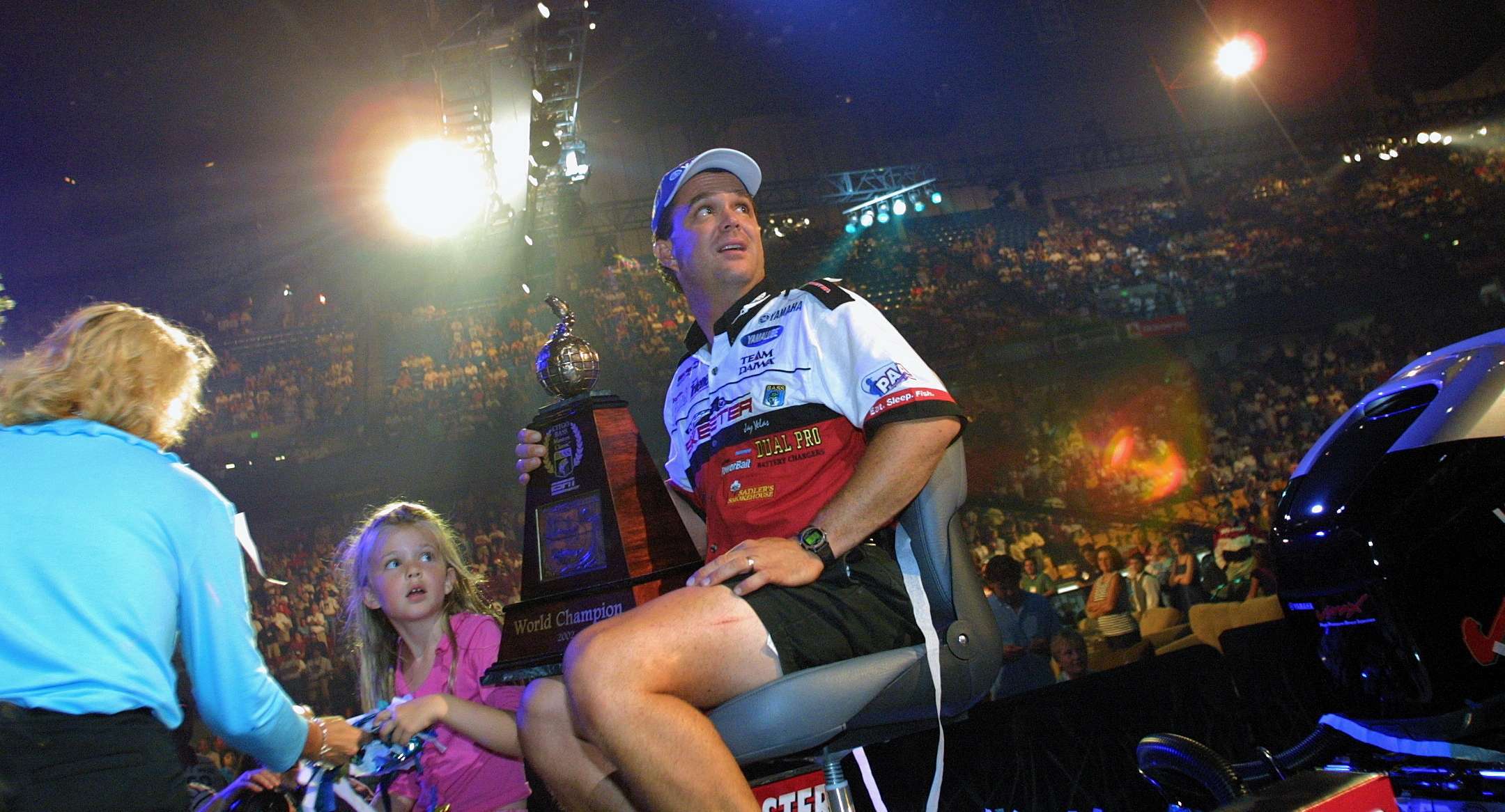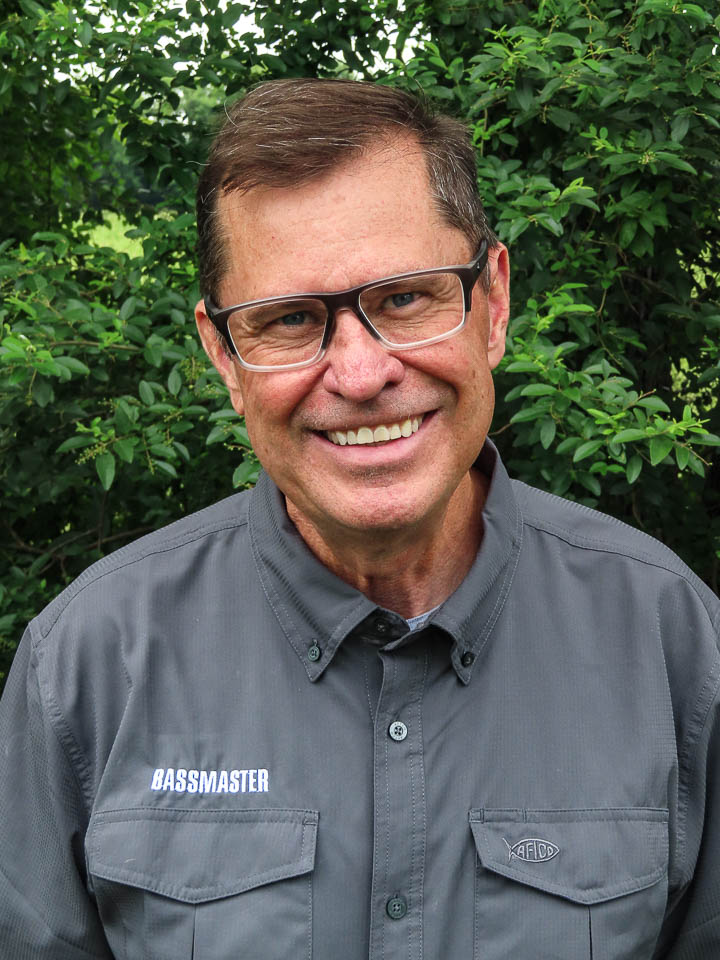
In the modern era one of bass fishing’s greatest world championship winning runs came during the early 2000s. Back then, Yamaha Pro Team anglers scored an amazing three consecutive Bassmaster Classic victories. For Yamaha, it would begin a dominance on the tournament trail that continues today with Classic victories, Bassmaster Angler of the Year titles and Bassmaster Elite Series wins.
Even more impressive was those dramatic wins in 2002, 2003 and 2004 all came on three diversely challenging fisheries, and by three uniquely different anglers. A 12-year veteran longing for his first Classic win, a former bass club national champion, and a Japanese fisherman who came here seeking to live the American Dream. In all cases, each winner brought his “A” game and won in the final dramatic minutes of the tournament.
The streak began in 2002 on Lay Lake in central Alabama. The summertime Classic exploited the angling virtues of how the Coosa River’s power-generating lakes can make or break a tournament angler. The bass fishing got hot when the current was turned on; without it the fishing turned cold. For 12-time qualifier Jay Yelas the action heated up just in time.
Three hours into the morning on Championship Sunday, Yelas had not caught a single keeper largemouth. After falling out of the lead the water began to flow, and a midmorning flurry of action began. Yelas set up on a magical 200-yard stretch of shoreline, making drifts across the strike zone where the bass staged to feed on passing baitfish.
Within minutes, Yelas had four crucial bass in the livewell. The fifth keeper bass needed to make it a full limit never came. It would not matter. The 10-pound, 11-ounce weight would secure the win and finally a world championship for Yelas.
The next year another dramatic win for Yamaha came on the Mississippi River at the end of its 2,348-mile journey to the Gulf of Mexico. The setting was the Louisiana Delta, where saltwater collided with freshwater to create a challenging tidal bass fishery. The tournament waters covered hundreds of miles of swamp, backwater oxbow lakes and the river itself. With only three days of competition there was little time to put together a winning strategy.
Michael Iaconelli fished the 1999 Classic there as winner of the B.A.S.S. Nation Championship, finishing a respectable sixth place. In 2003, the New Jersey angler came to win. Initially, Iaconelli planned to spend the tournament in a familiar area. That strategy never panned out. Iaconelli ditched the plan, choosing to fish unfamiliar water in the Venice area, literally as far south as you can go before land runs out. One particular lagoon had clear water — a rare commodity — with lots of baitfish and just the right mix of aquatic vegetation and current. The sum of the whole became the winning spot that Iaconelli would have all to himself.
Iaconelli won the Classic on the last day and at the end of the road leading from New Orleans to Venice. Even today, Classic fans remember Iaconelli screaming “Never give up!” as he boated the winning bass with just minutes remaining.
The next year would be more of the same for dramatic finishes. The 2004 Classic held on Lake Wylie, South Carolina, was about as tough as it could get. The lake received heavy angling pressure from Charlotte, N.C., and the surrounding metropolitan areas. The lake is 13,400 surface acres — small for a Classic fishery — and the tournament was held during the busy summer season.
Fishing his third Classic, Japanese angler Takahiro Omori targeted shallow water bass in the Catawba River, doing what he does best. Only problem was his pattern was drying up. Going into the final afternoon, Omori was just inside the Top 10, leaving many to doubt that he stood a chance of winning.
Omori abruptly changed tactics at 1:45 p.m., and within just 27 minutes his life would change forever. That’s how long it took for him to add three bass to his livewell to complete his winning limit.
Twelve years earlier, Omori left Japan with $2,000, one tacklebox, a few rods and his clothes. He arrived in Texas to compete in the Texas B.A.S.S. Invitational without knowing anyone or anything about American bass fishing. He was just 21 years old. Learning the language, the fishing and honing his competitive skills were the challenges that he faced. Ironically, he created a 15-year plan in 1991 to achieve his dream. Ironically, the plan worked and Omori became the first international angler to win a Classic.
Three consecutive years, three Yamaha Pro Team anglers, and each with a dream of winning a Classic. Yelas, Iaconelli and Omori did just that, and they continue being respected as top anglers today.

